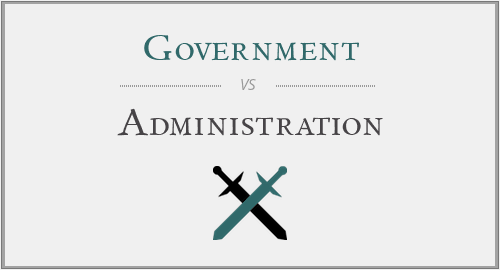Government vs. Administration: Navigating Distinctions in Governance
Understanding the differences between "government" and "administration" involves recognizing variations in roles and functions within the framework of governance. This article aims to clarify the distinctions between "government" and "administration," shedding light on their meanings, applications, and appropriate usage in different contexts.
Correct Usage:
Government:
"Government" refers to the system or body responsible for making and enforcing laws, policies, and decisions within a nation, state, or community. It includes elected officials, legislative bodies, and the overall structure that governs a society. Governments are responsible for creating and implementing laws and policies that guide a nation's direction.
Administration:
"Administration" refers to the organizational structure responsible for implementing and managing the policies and decisions formulated by the government. It encompasses the executive branch, civil service, and various agencies tasked with carrying out the day-to-day functions of governance. Administrations are instrumental in executing policies, managing resources, and ensuring the smooth functioning of government initiatives.
Meanings and Applications:
Government:
Use "government" when referring to the overarching system or body responsible for the governance of a nation or community. The government is involved in policy-making, law creation, and overall leadership.
Administration:
Use "administration" when discussing the organizational structure responsible for implementing and managing the policies and decisions formulated by the government. Administrations play a crucial role in the day-to-day operations and execution of governmental functions.

Examples:
Correct: The government passed a new law to address environmental concerns.
Correct: The administration worked diligently to implement the new healthcare policies.
Contextual Considerations:
Consider the scope and level of action when choosing between "government" and "administration." While "government" addresses the broader system and decision-making, "administration" focuses on the practical execution and management of policies.
Conclusion:
Navigating the distinctions between "government" and "administration" involves understanding their complementary roles in the governance structure. Whether discussing policy formulation or day-to-day operations, using the appropriate term enhances precision and clarity in discussions about governance.




Have a discussion about this article with the community:
Report Comment
We're doing our best to make sure our content is useful, accurate and safe.
If by any chance you spot an inappropriate comment while navigating through our website please use this form to let us know, and we'll take care of it shortly.
Attachment
You need to be logged in to favorite.
Log In